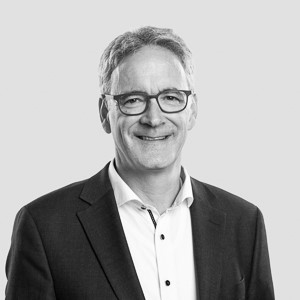Question: Could you describe the topic of your WP?
Answer Prof. Dr. Armin Eberle: Workpackage 06 is called "Case Study Zurich". This already implies what it is about. In various other work packages, technologies are developed, framework conditions are studied, or modeling approaches are invented. The results from these developments are to be used and tested under real conditions, which allows us to see where we can implement the research ideas in a complex urban environment and where they still need to be adapted.
Question: How does it relate to DeCarbCH?
A. Eberle: The results of the work packages are integrated into a real situation. For example, in the city, we see what specific challenges decarbonization imposes on residents, authorities, and infrastructure. What barriers need to be overcome, and what technical, regulatory, and economic solutions need to be found? We explore which of these challenges can be addressed by the work package deliverables and how they interact. For example, we can see why the connection to a district heating network fails due to technical or legal hurdles or where more refined modeling approaches are needed. Ultimately, the results from DeCarbCH can be validated through real-world testing and how they can be multiplied.
Question: What are the main objectives?
A. Eberle: The work package aims to apply, test, validate and improve approaches, tools, and results developed in other work packages to concrete locations in the city of Zurich. Furthermore, we support the city in the process of transformation toward carbon neutrality. We will test and monitor our findings in a real situation in the complexity of a built-up city. We will gain insights into the barriers and success factors of strategies to support the transition. This will also allow us to understand the opportunities for applying the strategies to other cities.
From a methodological perspective, this work package will lead to a better understanding of whether our methods and strategies are sufficient and appropriate, where and how they successfully complement existing approaches, and where new approaches are needed.
Question: What are the main research questions?
A. Eberle: In the first part, we identify the current challenges and research contributions with respect to the challenges of the city and the planned transformation. The Zurich project will be interlinked with the topics and research questions from the other work packages. Methods from other work packages will be identified and tested in Zurich, completely new methods can be tested, and we will compare our methods with those already applied in Zurich.
From the learnings in the case study, we compare and validate our assumptions and the feasibility of proposed technical solutions under real conditions. Given the specific situations, we will draw conclusions about measures needed for a successful transformation considering structural, demographic, economic, and regulatory frame conditions.
Finally, we will explore whether a planning tool from WP 03 can be used to identify optimized future thermal grids and associated renewables-based supply constellations in areas of Zurich. The question is whether it is possible to generalize the findings to other urban areas in Switzerland.
Question: What are the main expected outcomes of your WP?
A. Eberle: These findings serve as transformational insights. The aim is to draw lessons for the researchers (What works in real-life situations?) and for other cities (What can be learned from Zurich?). With the experiences on the level of the largest city in Switzerland, there is a great potential for the multiplication of the solutions. With the clearly identified and validated technical and socio-economic conditions of the different approaches, it is possible to scale up the solutions, adapted to different framework conditions in other cities and even in rural areas.
Question: Could you provide some examples to illustrate the specialty of your WP?
A. Eberle: In Zurich, we have an opportunity to bring science and implementation together. With the complexity of Zurich, its density, the different characteristics of districts, and energy sources and utilities, we will be able to test all kinds of solutions on a technical and socio-economical level. Freely cited from Frank Sinatra: "If we can make it there, we make it anywhere."
Question: A final word for our readers?
A. Eberle: Decarbonization is a major challenge. It needs to happen as fast as possible. Finding solutions in larger cities is both challenging and rewarding. Technical solutions are just as important as the population, which must support the process. That is why testing and learning in case studies is important.
